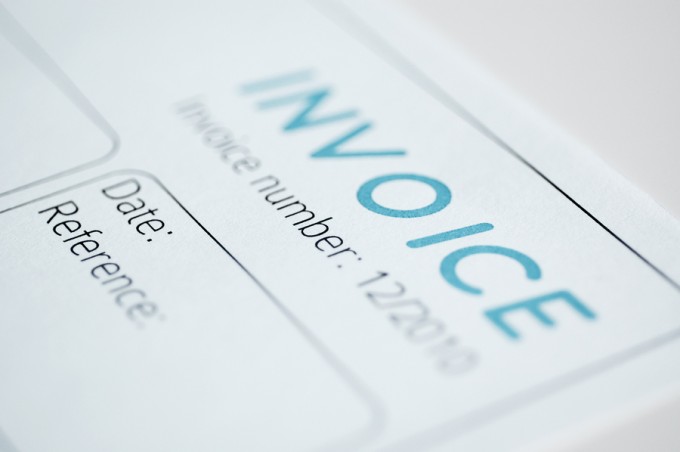The Pros and Cons of Invoice Finance

Invoice financing allows businesses to draw money against a percentage of an invoice prior to it being paid by the customer. Whilst this may sound like a great option to finance your business, careful consideration should be taken when considering invoice financing within your business.
First things first, one thing I have learnt from my experience in credit management, invoice financing is not for everyone, not every business model will need it, and indeed not every business should want it.
There are two types of invoice financing in the UK:
Factoring
Factoring companies will let you draw down a percentage of the value of an invoice (usually 80%) from the day it is issued. Factoring companies will then take over the sales ledger; carrying out all credit control duties. Once a customer has paid the invoice, you then receive the final 20% of the invoice value. If, however, the invoice is disputed for any reason by your customer, the 80% will immediately be deducted from available funds until your customer confirms to the factoring company that the invoice will be paid. Also, if after 90 days the invoice remains unpaid, the initial 80% is again deducted from available funds.
Confidential Invoice Finance
Very similar to factoring, invoice discounting will let you draw down a percentage of an invoice for up to 90 days. Where invoice discounting differs from factoring is that YOU retain control of your sales ledger and are responsible for the credit control; therefore the funds for disputed invoices are not withdrawn from your availability as long as the invoice is paid within the 90 day period. Cost is less than factoring as the finance company does not do credit control for you.
So what are the pros and cons of using these methods?:
Pros of Invoice Finance
Steady cash flow – ideal for businesses with a high cost of sales, such as temporary labour, as a large chunk of your invoice paid straight away, which will boost cash flow, rather than having to wait the required time for payment to fall due and chase for payment.
Options of confidential finance – Invoice finance has the option to be confidential if turnover is high enough and the company is a good risk; meaning your customer will not know that you use this option and, due to the fact you can manage the accounts yourself, you are able to strengthen the customer relationship.
Cons of Invoice Finance
Customer relationships – with factoring, you are handing over your customer base to a third party who are only interested in getting money in not maintaining customer relationship; with factoring you run a high risk of alienating your customers.
Cash flow issues due to the sudden withdrawal of available funds because of a disputed invoice. I have known some cases of companies going out of business because of this issue.
Perceptions – Companies that factor their sales ledger are perceived by their customers as high risk.
High charges – whilst confidential invoice finance is a lower % charge for the facility, invoice finance does remain one of the more expensive options to finance a business
Chasing payment – even when you factor your invoices, most companies still have to chase payment from their customers themselves to ensure invoices are paid within the 90 day period.
What to consider with invoice financing
From my years of experience, I have found that factoring is not the best way to finance for the majority of businesses. I can’t look past the risk of handing over your sales ledger to a company that is only interested in getting paid and doesn’t add to the relationship with a customer. I have seen many times where customer relationships have been destroyed by factoring companies. Confidential Invoice finance, however, can work for very well for some businesses (NOT ALL) , and can go hand in hand with the growth of a business.
Businesses with small profit margins may benefit from invoice finance, but I have to stress that they should be ready to take control of the credit management aspect of things. Invoice finance companies will want to see robust credit management policies and procedures in place when measuring the risk of financing that business, they will also want to see capable and trained credit control staff and will regularly audit the business to ensure policies and procedures are kept to. They will also set target Debtor Days (DSO) and the business will need to keep to those targets or risk intervention by the finance company of reducing available funds or converting the account to disclosed factoring.
CMG UK can provide outsourced collection service to customers who invoice finance, therefore reducing the perceived risk to the finance company. We can also implement a full credit policy and training all staff on compliance to again reduce perceived risk of any business who want to use invoice finance.
